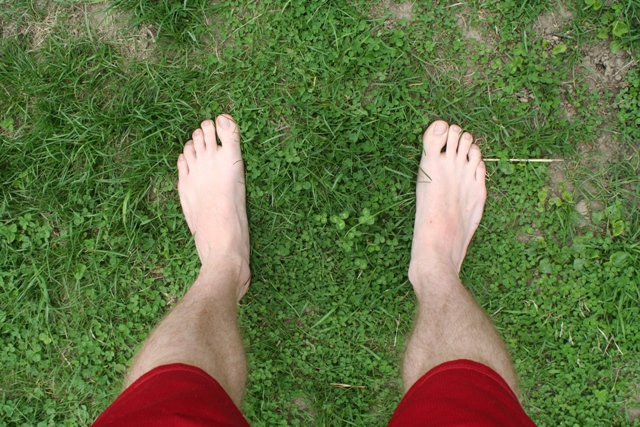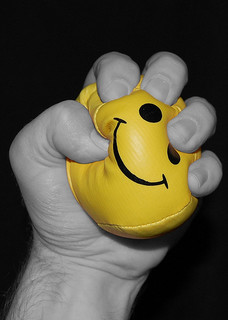I tend to care about things that I can use to improve my health, make me stronger, and ultimately better prepare me for the future. If you’re in the same boat, then I’m going to share a concept with you that may challenge some of the things you know about training, stress, and adaptation. I’m also going to show you how brain-dead easy it is to start using this in your lifestyle. But you’ll have to pay attention or you might not “get” it.
I believe it was Nietzsche who said, “what doesn’t kill you, makes you stronger,” and the more we are learning about the human body, the more correct he has become with time.
 You see, there’s this little phenomenon known as hormesis.
You see, there’s this little phenomenon known as hormesis.
Say wha?
You know… Hormesis.
OK, I had never heard of the term either – at least not until a few months ago.
According to Mark Mattson, whom, if I’m reading this correctly, is a neuroscientist, “In the fields of biology and medicine hormesis is defined as an adaptive response of cells and organisms to a moderate (usually intermittent) stress. Examples include ischemic preconditioning, exercise, dietary energy restriction and exposures to low doses of certain phytochemicals.”
In case the PhD lingo fogged up your brain for a second there, here’s another definition from Stephan Guyenet that is a bit simpler: “Hormesis is the process by which a mild or acute stressor increases resistance to other, more intense or chronic stressors.” (source here)
So, you see, at least two people agree with Nietzsche, including a doctor, which obviously makes Friedrich uber-correct on this issue and way ahead of his time (Surely, nobody thought that about him!).
But back on point, let’s get a little more specific with this explanation from Todd Becker: “Hormesis is a biological phenomenon whereby a beneficial effect (improved health, stress tolerance, growth or longevity) results from exposure to low doses of an agent that is otherwise toxic or lethal when given at higher doses. The philosophy of Hormetism… is based upon harnessing this biological phenomenon in a deliberate and systematic way in order to increase strength and resilience.” (source here)
NOW we’re starting to make some sense – thanks Todd! Exercise is a perfect example of hormesis. You stress the body just enough to elicit a positive adaptation. Vaccinations are another example as is taking a cold shower. There are tons of examples out there!
Todd goes on to say, “Hormetism puts forward the thesis that progressive hormesis is a general phenomenon that applies to virtually any stressor. Following the principles of intensity, constraint, oscillation, and gradualism… it should be possible to increase strength and tolerance with respect to a wide, virtually unlimited range of challenges and stressors.”
In other words, given the right dose, stress is extremely good for us in many ways. Are you starting to see the far-reaching implications this could have? Yeah, me too, but you’ll want to keep a few things in mind before you load a thousands pounds on the barbell or sign up for the special forces. So, let’s keep going!
What My Feet Can Teach You About Becoming Like the Ice Man
Note: Is that sub-title BOSS or what?

So, why am I telling you all this, and from whence did this blogpost come?
Well, I was out walking my dog today, going barefoot as usual, and at one point, I distinctly remembered how tough it was when I first started walking barefoot outdoors back in 2009. The memory came to me right about the time I stepped on a very tiny, and very sharp rock actually. But back when I first began this new adventure in 2009, every little pebble I stepped on made me feel as if the bottom of my feet had been severed by a katana and subsequently pummeled by a sledgehammer. My poor little feet had been coddled all my life, never venturing out of those protective shoes – even at the beach – and they had become a little sensitive as a result. Ok ok, VERY sensitive!
Barefoot Ken Bob Saxton describes the decision to go barefoot for the first time in your life like taking out ear plugs for the first time in years. Everything seems really loud all of a sudden! And that’s EXACTLY how it was for me when I first started going barefoot. There was all this neural “noise,” in the form of excruciating pain, indicating that something was wrong – terribly terribly wrong! And if you were lucky enough to catch a glimpse of me walking down my gravel driveway to get the mail, you would have laughed hysterically at my poor excuse of a pseudo-tribal tap-dancing routine accompanied by high-pitched “oooohhs” and “ahhhs” which often progressed into a frantic, shrieking crescendo at some point on my way back to the house. I jest – slightly.
But alas, upon returning home after the tumultuous journey down to the mailbox – after scrambling over terrain that would give volcanic rock a run for its money, my feet were always… fine. Much to my surprise, there were no blisters, no blood, no bruises, and no broken toes – only a highly perplexed humanoid returning home with no scars to prove that his valiant journey even took place. Talk about frustrating!
So, why on Earth was it so painful? Because I had taken the ear plugs out (ie taken my shoes off for the first time in my life), and the neural “noise” was so unbelievably loud I could barely even walk. It felt like severe, irreversible damage was being done with every footstep, but there was no injury whatsoever and my feet were always just fine afterwards – hardly any worse for the wear. And here’s the thing: the pain, the signals, the neural “noise” was all just a big hoax. It was an OVER the top warning because I was UNDER-prepared for that activity and it resulted in my nervous system sending a barrage of pain signals for practically nothing.
The same thing could happen if your body thinks you’re colder/hotter/weaker/less prepared/etc. than you really are. For example, there’s a big difference between feeling cold, being cold, and actually experiencing something like hypothermia or frostbite. But most people confuse feeling cold as being cold, and throw on a jacket at the mere hint of chilly temperatures. Likewise, there’s a big difference between feeling stressed and being stressed, and it’s all relative to YOU and YOUR circumstances. And so, the question I have for you is: when do you usually give in?
And what if we knew that some of these signals were farce? What if we knew that by pushing through that threshold of resistance that we could come out on top, and be even better for it? Well, it’s definitely possible, and I’m going to show you how – no PhD required.
How to Use Neural Noise to Your Advantage
So, this got me thinking today while on my walk. It was a little chilly – not cold – but chilly. And I couldn’t help but notice that it wasn’t so cold that I really needed a jacket. Of course, I didn’t realize this until AFTER I had left the house. But it got me thinking that what if I applied this little technique called Hormetism (the study and practice of hormesis) to cold intolerance? If I exposed my body to a small and gradual stressor of cold, over time, would I eventually have better cold tolerance?

The answer, which is entirely based on my own observations, opinions and finite life experience is absolutely yes. Do you know why? Because I’ve done it before – over and over and over again. I can look back to seasons of my life and tell you without a shadow of a doubt that I developed a tolerance for cold temperatures – both air and water temperatures. And for me, one of the keys is that it was seasonal, and seasons usually don’t change in a day (at least not in the rest of the world – only in New Hampshire). Seasons are constantly changing, and it takes months for a new season to fully arrive. Therefore, you could spend a whole season gradually improving your tolerance to heat, cold, etc. It involves gradual exposure to a light stressor that will ultimately lead to greater tolerance in the future – also known as hormesis.
This reminds me that one piece of advice I received from Erwan Le Corre (founder of MovNat) was that we must train the body for what he calls toughness – particularly when it comes to being outdoors in the elements. Erwan is renowned for training in the rain, snow, heat, etc. He trains his body to adapt to whatever environment he happens to be in, but I’m getting off topic.
So, stay with me here because I’m about to get to the main point. But before I do, let it be known that this is not about working out for 20 minutes three times a week folks. This is a perspective – something that, if internalized and practiced, can improve almost every single aspect of your life. So, don’t assume for a minute that this is merely about improving something as simple as temperature tolerance, which does have benefits and may be important for some people with certain lifestyles or professions, but isn’t really all that important in the grand scheme of things. That’s merely an example that’s easily understood because its physiological in nature. And it makes so much sense, too. All of your senses can be improved with practice and exposure to mild stressors. When it comes to physical adaptation, we tend to get fixated on things like strength training and cardio among other things, but we rarely acknowledge that even hearing and sight can be improved with practice!
How to Leverage Stress to Max Out In Life

But I think that the concept behind hormesis could be used for much broader purposes. Obviously, the health and fitness benefits that could be achieved from practicing Hormetism are not being debated here. But I think Hormetism could also be applied to mental conditioning and character development, among other things. It’s a very simple, powerful concept, that if properly leveraged, could do a lot of good for us.
So, the lesson for me, which I’m bringing to you today is to embrace a little bit of stress in your life. I’ll say it again, what doesn’t kill you, makes you stronger. Stress, and resistance in general, is not something to avoid or shy away from. It is meant to be embraced. Every single source of stress, whether small or large, general or specific, is an opportunity to get stronger – to grow, adapt, and learn. Too many people try to avoid stress. Some people even design their life around avoiding stress. That’s the same thing as designing your lifestyle to avoid growth, and it’s a lie we’ve been sold by anyone who told us that the comfortable, easy choice is better than the hard, right choice. Don’t be like that. Get comfortable with being uncomfortable. Embrace stress. Look for opportunities to exploit it. Like I said before, this is a perspective. It should not be something you just do. It should be something you are.
Just keep in mind that, like many things, the dose makes the poison. It’s true that if you don’t use it, you lose it. But something else you should know is that if you abuse it, you’ll lose it, too. Too much stress can backfire. So, use that thing between your ears and be careful out there – but not too careful.
One Last Thought
To really make the most of this new perspective, it’s not enough to just embrace stress as it comes into your life. You need to actively pursue after it, and I can’t think of a better way of doing this than by setting ambitious goals for each area of your life (physical, vocational, financial, relational, spiritual, educational, etc.). There’s a reason they say that your goals should scare you a little bit. It’s because you will need to stretch yourself in order to achieve something better than what you currently have, and that’s going to require some acceptance of stress into your life. So, if you’re not already, or you haven’t in awhile, set yourself some goals for each area of your life. If you need some help, you can get my complete goal setting system for free by signing up for my newsletter.
And if you’re a little stressed out from reading the last 2000+ words (trust me, you are!), then click here to learn how to relieve any type of stress in just 48 seconds. It works every time.
So, do you “get it” now?
If you found this article helpful, please share it with your friends and tweeps:
.jpg)
![]()
CST Coach, CST-KS
Health-First Fitness Coach
P.S. If you liked this post, then please signup for the newsletter, or follow me on Facebook or Twitter for daily updates and other interesting info.
P.P.S. Photo credit: http://www.flickr.com/photos/stephenpoff/, http://www.flickr.com/photos/tzofia/, http://www.flickr.com/people/22964099@N05/
John,
Like your blog!
The concept of introducing stress into your life for character development was also used in some Taoist sects hundreds of years ago (Quanzhen). Students had to beg for a living and live out in the wilderness.
They learned techniques to scare off wild animals and also learned to cope with lots of cold.
I am not sure how it works today, since stress is already a big part of our lives :)
But yeah, if we become complacent then we get nowhere in terms of development.
That’s a good point, Chris. This is nothing new under the sun, and it’s been around since humans have. I’d be curious to see if there are different results when someone is chronically stressed out. I know that physical adaptation in fitness attributes is usually slowed, stalled, or eliminated in cases of chronic stress, and I wouldn’t be surprised if that was the case for most other types of adaptation, too.